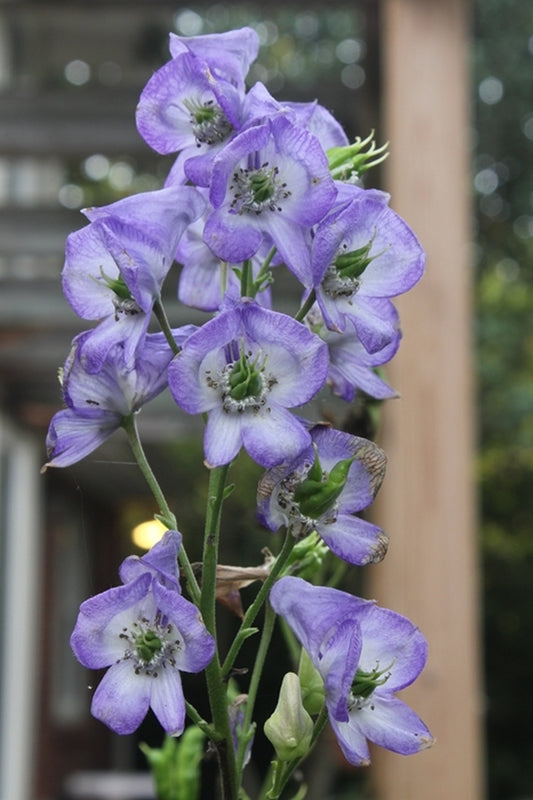The oddly shaped flower of aconitum has a specialized petal that looks like a helmet, hence the common name monkshood. Aconitum prefers moist, rich, well-drained soils in sun or part shade.
-
Aconitum carmichaelii 'Autumn Indigo'
Item #: 6999
Zones: 3a to 8b
Dormancy: Winter
Height: 60" tall
Culture: Sun to Light Shade
Origin: China
Pot Size: 3.5" pot (24 fl. oz/0.7 L)
Regular price $24.00Regular priceUnit price per -
Aconitum superbum 'Kupres'
Item #: 18011
Zones: 3a to 7b
Dormancy: Winter
Height: 48" tall
Culture: Sun to Light Shade
Origin: Bosnia
Pot Size: 3.5" pot (24 fl. oz/0.7 L)
Regular price $25.00Regular priceUnit price per
More Information About Aconitum
Aconitum is a fairly large genus of around 100 species in the same family as Helleborus (Ranunculaceae). Aconitum is not known for thriving in the hot, humid South but we are persistent and have found a few species that grow well. The oddly shaped flower of aconitum has a specialized petal that looks like a helmet, hence the common name monkshood (although any monk that had a hood shaped like an aconitum flower would probably be teased mercilessly). The other common name, wolfsbane, comes from the fact that most species (like the European Aconitum napellus) are deadly poisonous and have been used in Europe to lace the bait in wolf traps. The toxic properties of aconitum are legendary and have been used in Japan to kill bears, in India to kill tigers, and in literature (Ovid, Pliny, James Joyce, Peter Ellis) to kill heroes and villains alike.
Aconitum prefers moist, rich, well-drained soils in sun or part shade. Do not get toxic aconitum sap on your skin as it can be absorbed dermally, so wear gloves when handling aconitum. Note that Aconitum is frequently misspelled in the trade as Acontium. When you are ready to buy aconitum for your perennial garden, we hope you'll check out our list of aconitum (monkshood) for sale.




